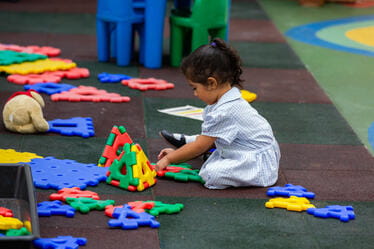IPC @ BCB
We are delighted to be introducing the International Primary Curriculum (IPC) to our Primary school this academic year. We believe that this significant development will not only deliver a timely injection of new ideas and fresh impetus to the Primary curriculum, but will also support the continued development of our academic staff and boost attainment for our pupils.
We are delighted to be introducing the International Primary Curriculum (IPC) to our Primary school this academic year. We believe that this significant development will not only deliver a timely injection of new ideas and fresh impetus to the Primary curriculum, but will also support the continued development of our academic staff and boost attainment for our pupils.
The IPC is used in schools all over the world. Currently this includes over 1000 national and international schools in more than 90 countries. Through the IPC approach to learning, children develop the knowledge, skills and understanding necessary to confidently face the world of tomorrow.
Learning with the International Primary Curriculum means that children focus on a combination of academic, personal and international objectives that are exciting and challenging. The aim of the IPC is to help every child develop an enquiring mind, the personal attributes that will help throughout teenage and adult years, and to help them define the sense of his or her own nationality and culture, at the same time as developing a profound respect for the nationalities and cultures of others.
The IPC was introduced in 2000, after a development process of four years with leading educational thinkers, school leaders, highly skilled teachers and curriculum writers. Its continued development today ensures that children are learning a current and highly relevant curriculum based on the very latest research into understanding how children learn.
Here is the key information about the IPC that every Primary parent should know:
- Children learn through a series of IPC units of work. Each unit of work has a theme that today’s children will find interesting and relevant. Examples of these themes include: Time Travelers, Scavengers and Settlers, and The Holiday Show. Each unit of work lasts on average between three and nine weeks and children learn many of their subjects through this one common theme so that their learning is meaningful to them.
- Linking subjects means that children can make lots of connections with their learning. We now know that the more connections that the brain can make, the better a child can learn.
- The development of skills is a very big part of the IPC and learning activities have been designed so that children can develop these skills. This development of skills even applies to the personal learning goals, which emphasise adaptability, resilience, thoughtfulness, cooperation and respect and which, as a result of progressive skill development, help children to become inspired learners.
- The IPC is not just topic learning. The learning that the children do within their unit’s theme has very distinct outcomes to ensure that children are learning exactly what they need to learn.
- The IPC focuses children’s learning on a combination of knowledge, skills and understanding. No one can properly predict the nature of work and life opportunities that will be available for today’s Primary age children by the time they are adults. Many of the jobs they will have don’t yet exist; especially in the fields of ICT, technology and science. The IPC focuses on a skills-based approach, developing adaptable and resilient globally-minded learners, prepared for the fast-changing world that they’ll be living and working in.
- The IPC has been designed for children of all abilities and all learning styles, and encourages learning in groups as well as individual work.
- In order that parents know what their child is learning, they are sent a letter at the beginning of each IPC unit which outlines what learning will be covered and how parents can help continue that learning at home if they choose.
- IPC units of work start with an Entry Point activity, designed to pique the children’s interest at the outset of their learning, and end with an Exit Point event, which celebrates and shares the learning that has taken place with a wider audience.
- You can find out more about the process of learning in the IPC by watching this short video.
We hope that you and your children are as excited about this development as we are. We can’t wait to share some wonderful IPC learning with you at Exit Points in the near future!







